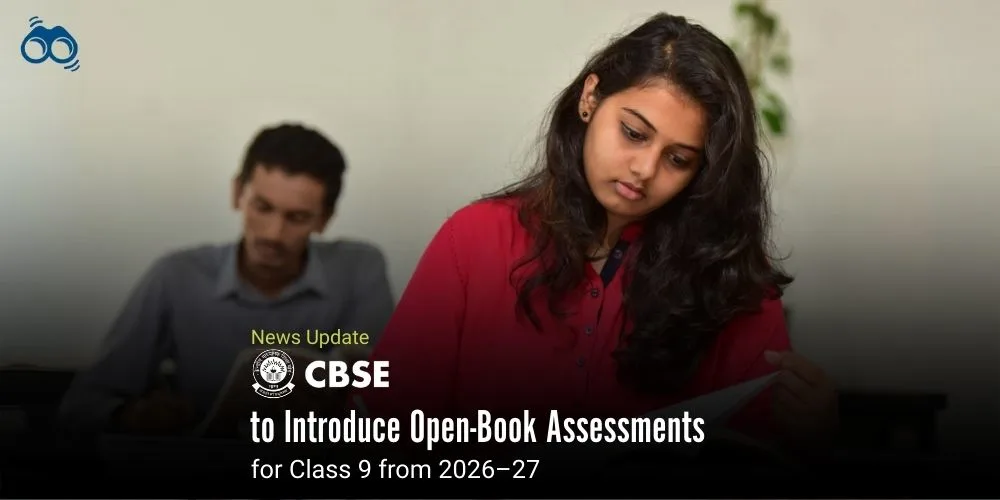CBSE Aligns with NEP 2020: Open-Book Exams to Replace Rote Learning in Class 9
India’s School Assessment Reform Gains Momentum with CBSE’s Open-Book Initiative
In a decisive move to reform student assessment practices, the Central Board of Secondary Education (CBSE) has announced the phased introduction of open-book assessments (OBAs) for Class 9 students, commencing with the 2026–27 academic session. This decision, formally approved by the board’s Governing Body in June 2025, follows a pilot study that examined the feasibility, institutional preparedness, and stakeholder reception of the format across affiliated schools.
Crucially, the initiative seeks to shift the emphasis from rote memorisation towards deeper conceptual understanding, critical thinking, and application-based learning. It is closely aligned with the pedagogical principles outlined in the National Curriculum Framework for School Education (NCFSE) 2023 and the National Education Policy (NEP) 2020, both of which advocate for competency-driven and inquiry-led education models. As part of the revised assessment structure, OBAs will be integrated into the three pen-and-paper tests conducted each academic term. These assessments will cover core subjects including languages, mathematics, science, and social science. During examinations, students will be permitted to consult textbooks, class notes, and board-approved reference materials. While CBSE will issue standardised guidelines and sample papers to support implementation, adoption of the format will remain optional for schools.
The current proposal builds upon a pilot project initiated in December 2023, wherein open-book exams were administered to students in Classes 9 to 12. Performance outcomes ranged from 12% to 47%, highlighting challenges in resource navigation and interdisciplinary comprehension. Nevertheless, the study revealed positive teacher sentiment, with many educators expressing confidence in OBAs as a means to foster analytical reasoning and higher-order thinking.
It is worth noting that CBSE had previously introduced the Open Text-Based Assessment (OTBA) for Classes 9 and 11 in 2014, which provided reference materials in advance of examinations. However, the initiative was discontinued in 2017–18 due to limited impact on critical thinking outcomes. To facilitate effective implementation, the board intends to provide comprehensive training and guidance to schools, alongside exemplar materials that will help students engage with reference texts and apply their knowledge to real-world scenarios. The introduction of OBAs represents a strategic effort to recalibrate assessment practices in line with national education reforms and global pedagogical standards.
Editor’s Note:
The Central Board of Secondary Education (CBSE) will introduce open-book assessments (OBAs) for Class 9 from the 2026–27 academic year. This change marks an important step in India’s school education reform. It moves away from traditional rote learning towards competency-based learning. This approach is supported by the National Education Policy (NEP) 2020 and the National Curriculum Framework for School Education (NCFSE) 2023. The rollout will be gradual and supported by sample papers and teacher training. The goal is to promote higher-order thinking and real-world learning in assessments. The decision is based on a pilot study done across Classes 9 to 12. Student performance varied from 12% to 47%, showing the need for better guidance on using resources. However, teachers gave positive feedback and believe OBAs can encourage inquiry-based and interdisciplinary teaching.
Skoobuzz highlights that CBSE is also revisiting its earlier Open Text-Based Assessment (OTBA) program, which was stopped in 2017–18. This shows the board’s commitment to updating assessment methods. If done well, OBAs could help change India’s education system to focus more on understanding than memorisation.














0 Comments (Please Login To Continue)